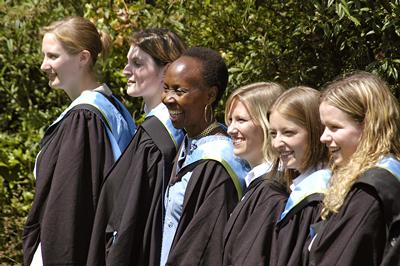For some students their undergraduate degree is only the start of their higher education experience. After graduating at the end of your third year you may decide to go on to postgraduate study.
If you choose to study at Southampton, you'll work with internationally respected academics and experience world-leading research as it happens.

Role
Understanding ageing uses insights from social policy, demography, sociology, biology, healthcare sciences, psychology and economics. Gerontology is thus a fundamentally interdisciplinary subject which leads to a fascinating variety of careers.
Taught degrees
There is a range of postgraduate programmes in gerontology, tailored to needs of graduates, mid-career professionals and mature returners to education. These include full-time, part-time and short-courses, and can be taken face-to-face or by distance learning.
List of taught degrees
- MSc Gerontology
- PG Cert Gerontology
- MSc Gerontology (Distance Learning)
- PG Cert Gerontology (Distance Learning)
- PG Dip Gerontology (Distance Learning)
- MSc Gerontology (Research)
- Short courses in gerontology
- Short courses in gerontology (distance learning)
How to apply
To apply for postgraduate study you must satisfy the University's general entry requirements as well as any specific requirements for your chosen programme.
Find out more about how to apply for a postgraduate taught degree
Apply on-line at www.southampton.ac.uk/postgraduate. As well as completing the application form on-line, applicants should upload documents as part of their application. These documents should preferably be in PDF format and must include:
- academic transcript
- degree certificate
- English language certificate (IELTS or equivalent) except those from English exempt countries*
- CV and personal statement
- two reference letters


Research degrees
Research students are registered initially for an MPhil and are upgraded to a PhD after a period of satisfactory progress. A minimum of one year of full-time registration is required for an MPhil and two years full-time registration for a PhD. For part-time registration, the periods are two and three years respectively.
Application process
To apply, please complete the online application form.
After you graduate
Postgraduate study at the University of Southampton will enable you to push the boundaries of knowledge in your chosen field and make a real contribution to your subject.
We will provide you with an extensive support network, both during and after your time at the university. By the time you graduate you will have all the knowledge and resources you need for your next step, whether you choose a new career or further study.
When the time comes to move on after your postgraduate studies, you will become part of our global alumni community, with more than 170,000 members in 147 countries. As a member of this extensive network, you will be offered a series of benefits, services and events.
Find out more: https://www.southampton.ac.uk/ageing/postgraduate/index.page?

Demography and statistics careers
Career choices for Demography and Social Statistics graduates
Economics careers
Sociology careers
Career choices for Sociology, Social Policy, Criminology and Anthropology graduates
What's related

From working in the third sector to playing regular football for the Social Sciences team, the skills I have developed at Southampton will prove invaluable in any future job.